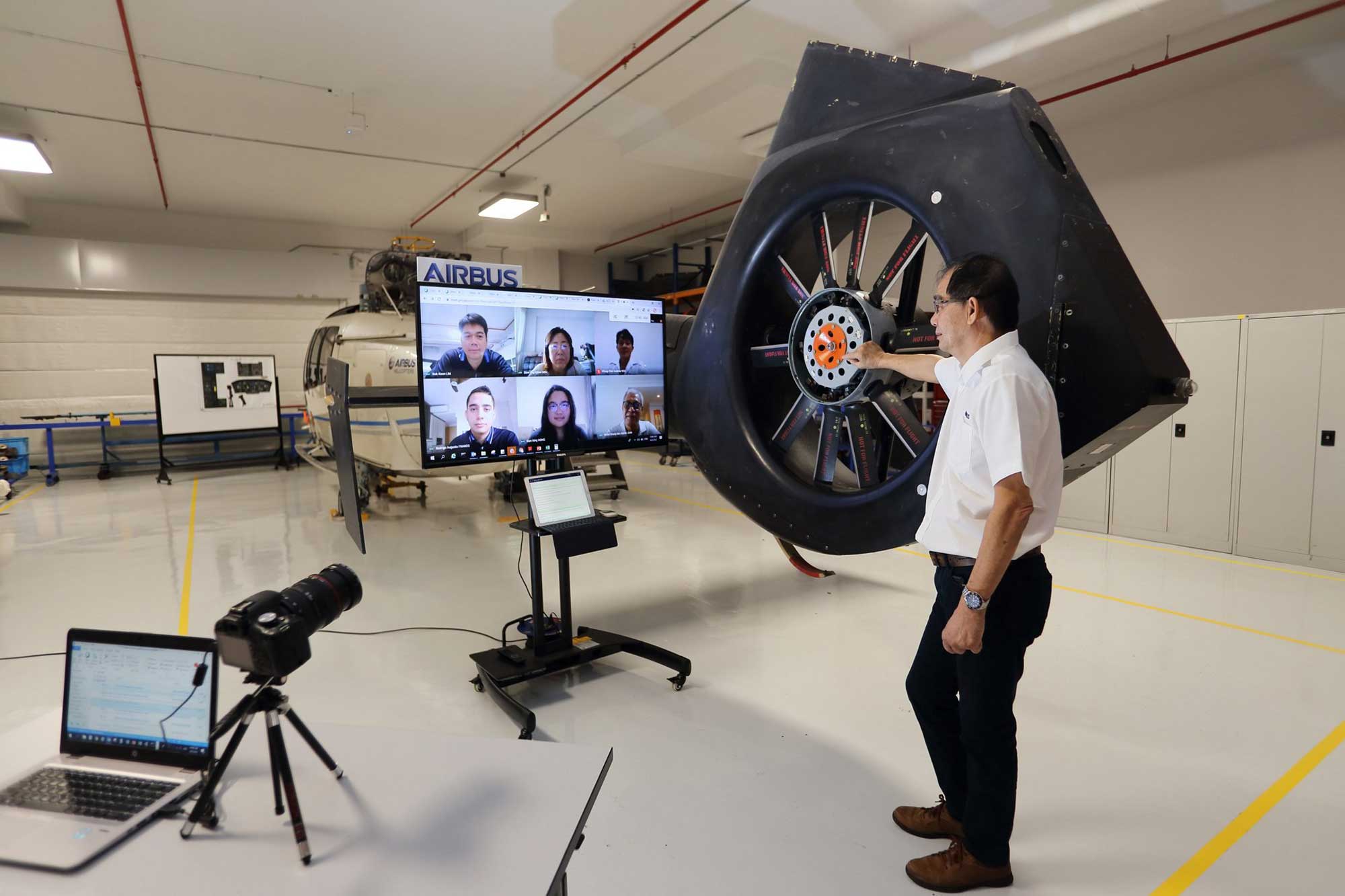
“… and this big round thing is the fenestron,” Airbus Helicopters is running more pilot and technician training courses online
Did you know Airbus Helicopters offers pilot training as well as manufacturing helicopters? In response to rising demand created by the pandemic, the Marignane, France based company is expanding its distance learning for a variety of courses including type ratings, recurrent training and familiarisation.
“Pilot and technician training is a key element of aviation safety that we are continuously improving and innovating to better serve our customers,” says Sabrina Barbera, Head of Training & Flight Ops at Airbus Helicopters.
“Remote courses allow customers to perform training wherever they are based, without having to travel, which significantly decreases the overall cost and makes certain courses more accessible in all ways for our customers.”
Distance learning comes in two formats: virtual classroom sessions, led by an instructor, and e-learning modules for independent study.
This type of learning is best suited for theoretical courses focused on knowledge acquisition, either non-qualifying refresher courses or the theoretical portion of qualifying courses.

The latest helicopter from Airbus is the H160, recently certified by EASA
Simulator training or practical hands-on training must be performed live in a helicopter with an instructor, and with the appropriate hygiene and physical distancing measures in place. Airbus Helicopters has 20 training centres which have trained more than 14,000 people over the past ten years.
Some distance courses now becoming permanent fixtures in the course catalogue were specifically developed by Airbus Helicopters, in collaboration with aviation authorities, to maintain training continuity throughout the COVID-19 pandemic.
“The COVID-19 crisis reinforced the need for both onsite and distance learning,” says Barbera, “and enabled us to accelerate the efforts already in place.”
On the trainees’ side, distance learning requires a personal computer, internet connection with sufficient bandwidth, a built-in camera and a microphone.
On the instructor’s side, Airbus has tailored hardware. “We now have a separate large TV display showing all the faces of the trainees so that valuable non-verbal communication cues are not lost.”
In addition, course content, assessment methods and rules of interaction are developed specifically for the remote learning environment.
“We set ground rules for interactions initiated by instructor and those initiated by trainees. Quizzes have become an important way to gauge trainee progress. We also found that having a ‘helper’ to take care of the administrative issues made a great difference. It minimised the instructor’s workload.”
